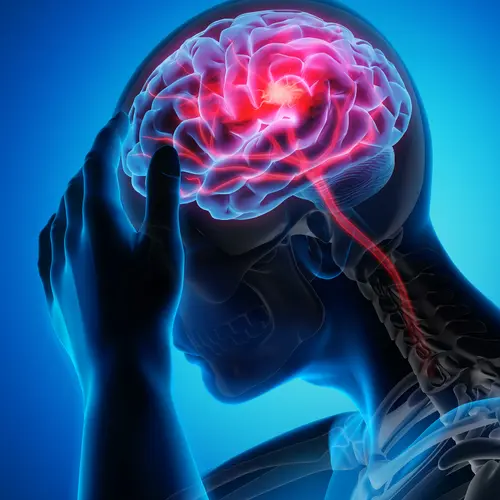The present economic situation in the country demands you keep an eye on your body language so as to avoid a relapse in your health that can lead to stroke and sudden death.
A stroke happens when blood flow to a part of your brain is cut off. Without the oxygen in blood, brain cells start dying within minutes. To help prevent a stroke, learn about the causes and the things that can raise your odds of getting one.
Types
A stroke can happen in two main ways: Something blocks the flow of blood, or something causes bleeding in the brain.
Ischemic stroke. In 8 out of 10 strokes, a blood vessel that takes blood to your brain gets plugged. It happens when fatty deposits in arteries break off and travel to the brain or when poor blood flow from an irregular heartbeat forms a blood clot.
Hemorrhagic stroke. It’s less common than an ischemic stroke but can be more serious. A blood vessel in your brain balloons up and bursts, or a weakened one leaks. Uncontrolled high blood pressure and taking too much blood thinner medicine can lead to this kind of stroke.
Some people have what’s called a transient ischemic attack (TIA). This “mini stroke” is due to a temporary blockage. It doesn’t cause permanent brain damage, but it raises your odds of having a full-scale stroke.
Causes
You can treat some conditions that make you more likely to have a stroke. Other things that put you at risk can’t be change
High blood pressure. Your doctor may call it hypertension. It’s the biggest cause of strokes. If your blood pressure is typically 130/80 or higher, your doctor will discuss treatments with you.
Tobacco. Smoking or chewing it raises your odds of a stroke. Nicotine makes your blood pressure go up. Cigarette smoke causes a fatty buildup in your main neck artery. It also thickens your blood and makes it more likely to clot. Even secondhand smoke can affect you.
Heart disease. This condition includes defective heart valves as well as atrial fibrillation, or irregular heartbeat, which causes a quarter of all strokes among the very elderly. You can also have clogged arteries from fatty deposits.
Diabetes. People who have it often have high blood pressure and are more likely to be overweight. Both raise the chance of a stroke. Diabetes damages your blood vessels, which makes a stroke more likely. If you have a stroke when your blood sugar levels are high, the injury to your brain is greater.
Weight and exercise. Your chances of a stroke may go up if you’re overweight. You can lower your odds by working out every day. Take a brisk 30-minute walk, or do muscle-strengthening exercises like pushups and working with weights.
Medications. Some medicines can raise your chances of stroke. For instance, blood-thinning drugs, which doctors suggest to prevent blood clots, can sometimes make a stroke more likely through bleeding. Studies have linked hormone therapy, used for menopause symptoms like hot flashes, with a higher risk of strokes. And low-dose estrogen in birth control pills may also make your odds go up.
The loss of blood flow to the brain damages tissues within the brain. Symptoms of a stroke show up in the body parts controlled by the damaged areas of the brain.
The sooner a person having a stroke gets care, the better their outcome is likely to be. For this reason, it’s helpful to know the signs of a stroke so you can act quickly. Stroke symptoms can include:
- paralysis
- numbness or weakness in the arm, face, and leg, especially on one side of the body
- trouble speaking or understanding others
- slurred speech
- confusion, disorientation, or lack of responsiveness
- sudden behavioral changes, especially increased agitation
- vision problems, such as trouble seeing in one or both eyes with vision blackened or blurred, or double vision
- trouble walking
- loss of balance or coordination
- dizziness
- severe, sudden headache with an unknown cause
- seizures
- nausea or vomiting
A stroke requires immediate medical attention. If you think you or someone else is having a stroke, call 911 or local emergency services right away. Prompt treatment is key to preventing the following outcomes:
- brain damage
- long-term disability
- death
It’s better to be overly cautious when dealing with a stroke, so don’t be afraid to get emergency medical help if you think you recognize the signs of a stroke.
Share your story or advertise with us: Whatsapp: +2347068606071 Email: info@newspotng.com















